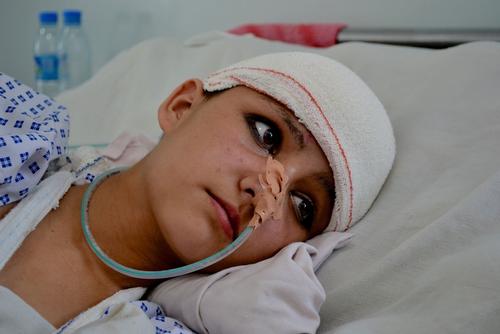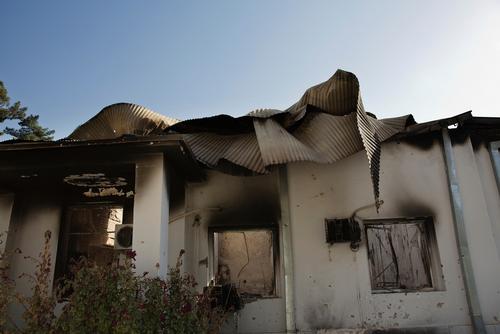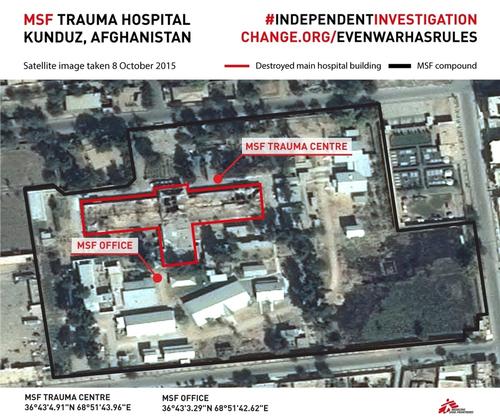Kunduz/Kabul – Heavy fighting between Afghan forces and armed opposition groups in the north-eastern province of Kunduz is increasingly isolating people living in the districts from the provincial capital, where Médecins Sans Frontières’ (MSF) trauma centre has been receiving wounded patients.
While Kunduz had been considered one of the more stable provinces in the ongoing conflict in Afghanistan, there has been a significant increase in fighting since last year, with the current ‘spring offensive’ bringing a particularly intense level of combat. In the three weeks since the announcement of the annual ‘fighting season’, medical staff at MSF’s trauma centre have treated 204 war wounded patients, the vast majority of them injured by gunshots or bomb blasts. Of these patients, 51 were women and children.
“The proportion of war-wounded patients in the centre has more than doubled compared to the same period last year, from 6 percent to 14 percent,” says Laurent Gabriel, MSF coordinator at the trauma centre. “The surgeons are dealing with severe abdominal and chest injuries, with many patients requiring a series of complex surgical interventions.”
The situation is volatile, with the flow of wounded arriving to the emergency room sporadic, ranging from five war-wounded in one day to as many as 35 on another. The daily variation in admissions reflects the unpredictability of the conflict, as well as the difficulties that people in the districts have in accessing the hospital in the city.
“It is difficult to have a clear view of what is happening in the districts outside the city, where fighting is ongoing”, says Gabriel. “We are very concerned that people living in these areas are not able to make it to the trauma centre for treatment in time, due to the continued fighting, and the fact that they have to face numerous checkpoints to get into the city. Our patients tell us that some roads to Kunduz city are mined, forcing them to take long detours to reach the town. Given the severity of the injuries, this delay can be fatal.”
In the busy wards, some patients who have finished their treatment are refusing to be discharged from the hospital because they fear going back home to the districts Throughout the province, Kunduz residents restrict their movements to the minimum and prefer to stay indoors. As a result, the number of traffic accident victims arriving to MSF’s trauma centre has decreased significantly, from 109 patients the first week of April to sixty in the first week of May. However, emergency rooms remain busy, with medical teams treating 1,470 patients in three weeks
“For more than a year, Kunduz province has been shaken by military operations, becoming a chronic conflict zone where the opposition and the government constantly dispute themselves the same areas, with shifting support from local militias” says Guilhem Molinie, MSF Country Representative. “Local residents, who have no choice but to go on with their lives, risk being shot or killed while playing in their courtyard, harvesting their field or going to the bazaar.”






